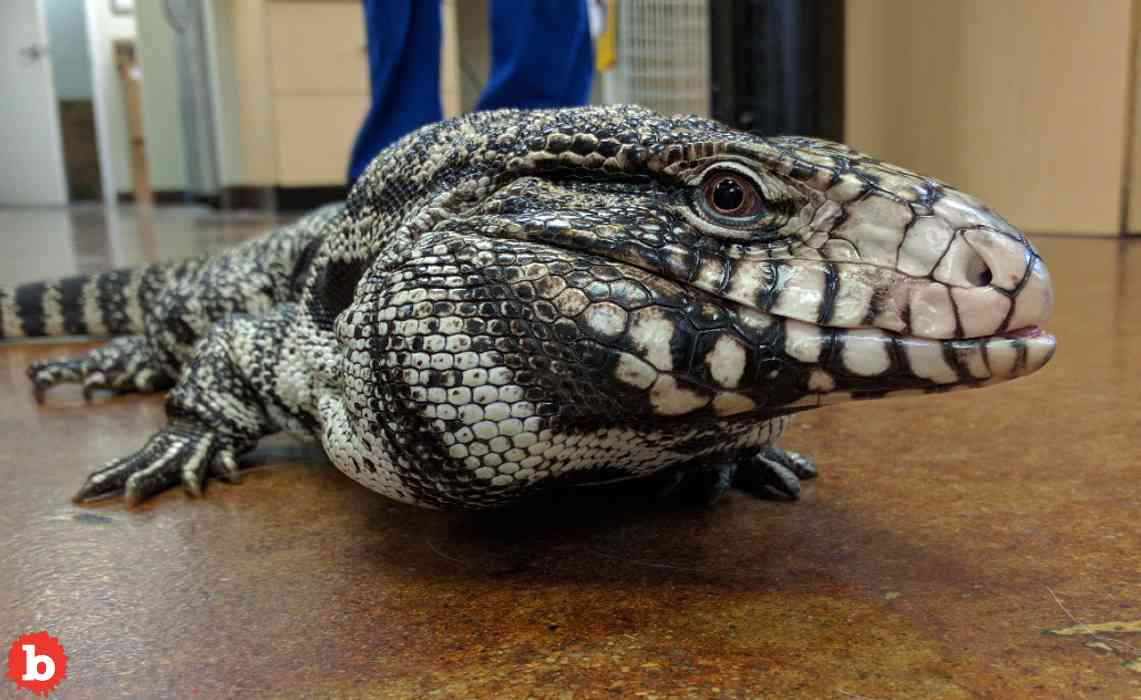
GIANT INVASIVE LIZARDS ARE ON THE LOOSE IN SOUTH CAROLINA, AND COULD BE A PROBLEM
I’ve never really spent much time in South Carolina, so I’m not too familiar with the state. That really means I drove thru it once, maybe twice. But my SC ignorance aside, I know that there aren’t supposed to be any invasive lizards the size of dogs running around in the wild. But now, there are. And if I lived down there, I’d be quietly appalled. And there’s some cause for that, as the South Carolina Department of Natural Resources says if you see one, please call them. And send them a photo, too. Because while the Argentine Black and White Tegu lizard isn’t poisonous, it does have powerful jaws.
Read More: Hopefully, Self-Checkout Will Soon Be a Thing of the Past
THE BLACK AND WHITE TEGU LIZARD CAN GET AS LARGE AS 4 FEET LONG, TOO BIG FOR A PET LIZARD
So what do I mean by giant, invasive lizards in terms of scale? I mean as much as 4 feet long. Sure, that’s not the size of a Komodo dragon or anything. But imagine taking a hike with your dog and having one of these things appear, and you having to separate your dog from one after it goes after it. And that size is part of why these creatures are now out in the wild in South Carolina. They used to be wildly popular as pets. But when they got too big -say, 4 damn feet long- some people simply let them go into the wild.
Related:
BLACK AND WHITE TEGUS HAVE POWERFUL JAWS, AND IF THEY BITE AND THRASH YOU COULD BE IN TROUBLE
And these giant invasive lizards are pests, the kind that eat the eggs of quail, turkeys, alligators, gopher tortoises, chickens. They’re also opportunistic omnivores for fruit, veggies and plants, as well as small animals and insects. And if you happen to take a stroll in South Carolina and come across one, don’t mess with it. If it bites you with its powerful jaws it will hurt and injure you to some degree. But if it bites you and then thrashes (think sharks tearing at a whale carcass), one of these giant invasive lizards will tear you up in a bad way.
Hopefully, the state of South Carolina will be able to catch and kill as many of these creatures as they can before they become as pervasive as the lantern fly.





